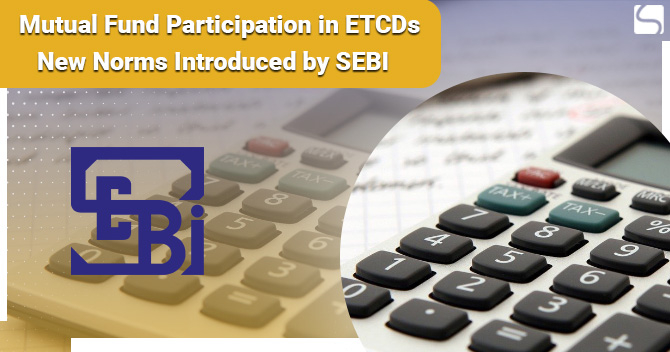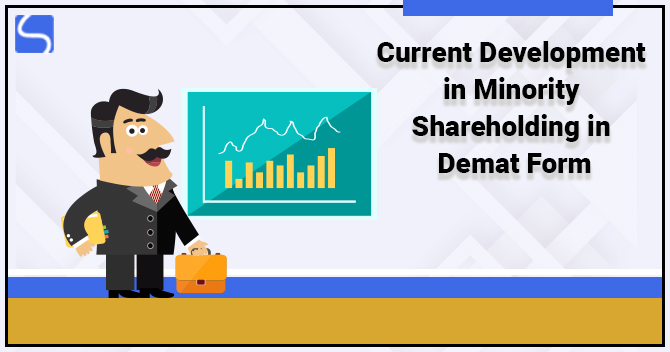Mutual Fund Participation in ETCDs: New Norms Introduced by SEBI

Shivani Jain | Updated: Feb 17, 2021 | Category: News, SEBI Advisory
Recently, SEBI, by way of the powers conferred under the provisions of section 11 (1) of the SEBI Act 1992 along with the rule 77 of the SEBI (Mutual Funds) Regulations 1996, have passed a Circular No. SEBI/ HO/ IMD/ DF2/ CIR/ P/ 2021/ 10, issued on 15.01.2021. The said circular deals with the amendment in the norms concerning Mutual Fund Participation in ETCDs by SEBI.
Also, it shall be considerate to take into consideration that the said amendment has been made under Circular No. SEBI/ HO/ IMD/ DF2/ CIR/ P/ 2019/ 65 and SEBI/ HO/ IMD/ DF2/ CIR/ P/ 2020/ 96, issued on 21.05.2019 and 05.06.2020 respectively. Through these Circulars, SEBI had permitted the Mutual Fund Participation in ETCDs. Further, the term ETCD stands for Exchange Traded Commodity Derivatives.
Further, it shall be significant to take into the note that SEBI had allowed the participation of Mutual Funds in Exchange Traded Commodity Derivatives by way of Hybrid Schemes, which includes the following:
- Multi Asset Scheme, and;
- Gold Exchange Traded Funds (ETFs) with an Investment Threshold of 10% of the NAV (Net Asset Value) on the former;
In this blog, we will discuss about the changed norms concerning the Participation of Mutual Fund in ETCDs by SEBI.
Table of Contents
Concept of Mutual Funds
The term Mutual Fund means a company that is engaged in pooling money form the investors, and after that, invests the same in various securities, such as Stocks, Short Term Debt, Bonds, etc.
Further, the combined holding of a mutual fund is known as Portfolio. Under this, the investors will buy shares in the mutual fund, and each share depicts the part of ownership in fund and the revenue it generates.
Also, Read: Revision of Disclosure Format by SEBI
Concept of Exchange Traded Commodities Derivatives
The term Exchange Traded Commodities Derivatives or ETCDs denote futures and options, together with a standardised contract, traded on recognised stock exchanges. Further, the most common ETDs include Index, Stock, Currency, Real Estate Derivatives, and Commodities.
Also, an ETCD can track both individual commodities and basket of various commodities and can work as an interesting alternative to trading commodities in the future market
Moreover, the different types of Exchange Traded Commodities Derivatives are as follows:
- Stock Derivatives;
- Index Derivatives;
- Currency Derivatives;;
- Commodities Derivatives;
- Real Estate Derivatives;
The most common benefits of ETCDs are as follows:
- Highly Liquid in Nature;
- Process of Intermediation minimises the Risk of Default;
- Works as Regulated Exchange Platform;
Purpose for Amending Norms of Mutual Fund Participation in ETCDs
The purpose behind the amendment in the norms concerning Mutual Fund Participation in ETCDs are as follows:
- To Protect the Interest of Investors;
- To Promote Development of the Securities Market;
- To Regulate the Securities Market;
Amendments Made in Mutual Fund Participation in ETCDs
Based on the Circular passed by SEBI, the main amendment made in the provision concerning Participation of Mutual Fund in ETCDs is that, from now onwards mutual funds will not write options, or purchase instruments, together with embedded written options in goods, or on commodity futures.
Things to Remember regarding Participation of Mutual Fund in ETCDs
The main thing to remember regarding the Participation of Mutual Fund is that except the provision mentioned above, all the other conditions, provisions, and stipulations concerning such participation will remain the same.
Example of the Changed Norm
Assume a mutual fund has taken delivery of 1 Kg of Gold on an exchange, then, in that case, it can start a short position on 1 kg contract of gold futures traded on that recognised stock exchange.
That means this 1 kg will not be calculated as Futures contracts and will facilitate the purchase or sale of an underlying commodity at a present price/ cost for delivery on some future date.
Conclusion
In this article, we have discussed in detail concerning the concept of Mutual Funds, Exchange Traded Commodities Derivatives, together with its participation in the Exchange Traded Commodity Derivatives. Also, we have tried to make our audience understand the concept by way of an example.
However, in the case of any doubt or query, reach out to Swarit Advisors, our experts are there to solve out all your doubts.
Official SEBI Circular on Participation of Mutual Fund in ETCDs
Participation-of-Mutual-Fund-in-ETCDsAlso, Read: Annual Compliance for a Listed Company as per SEBI Regulations














